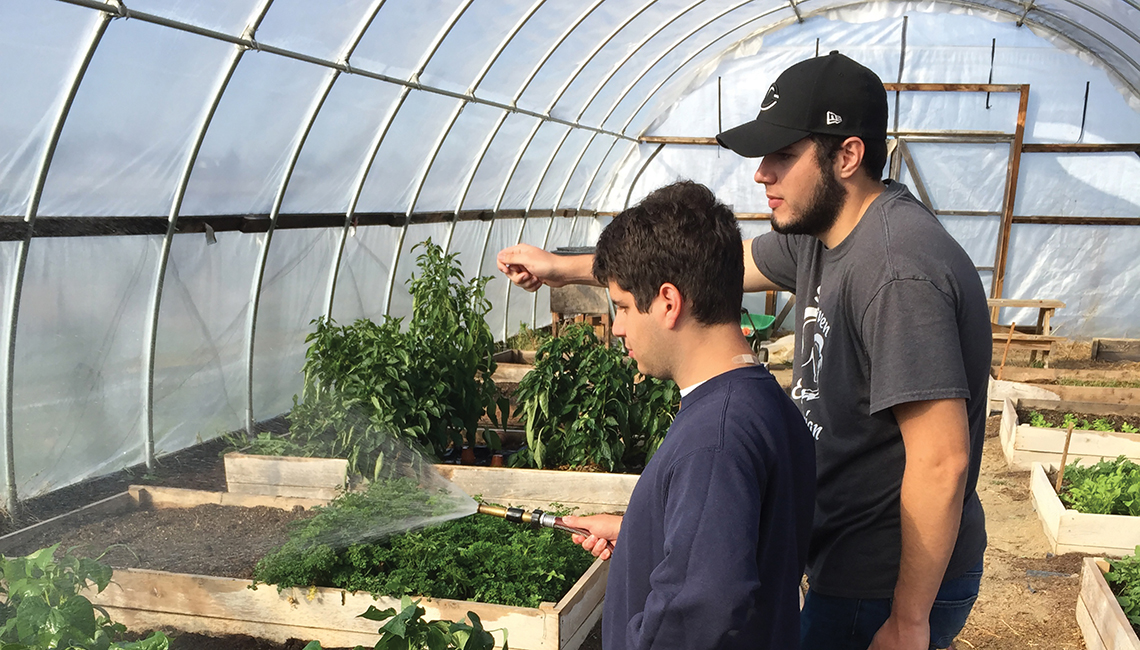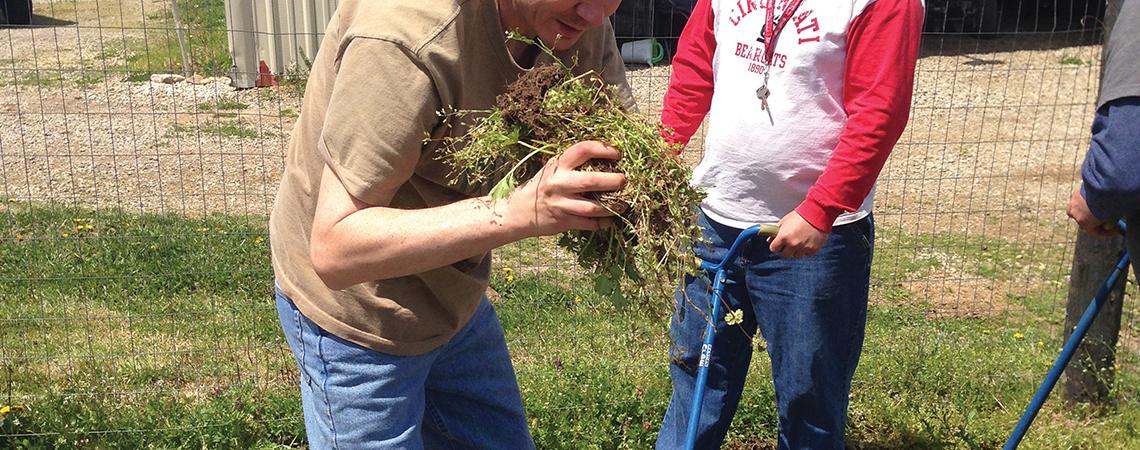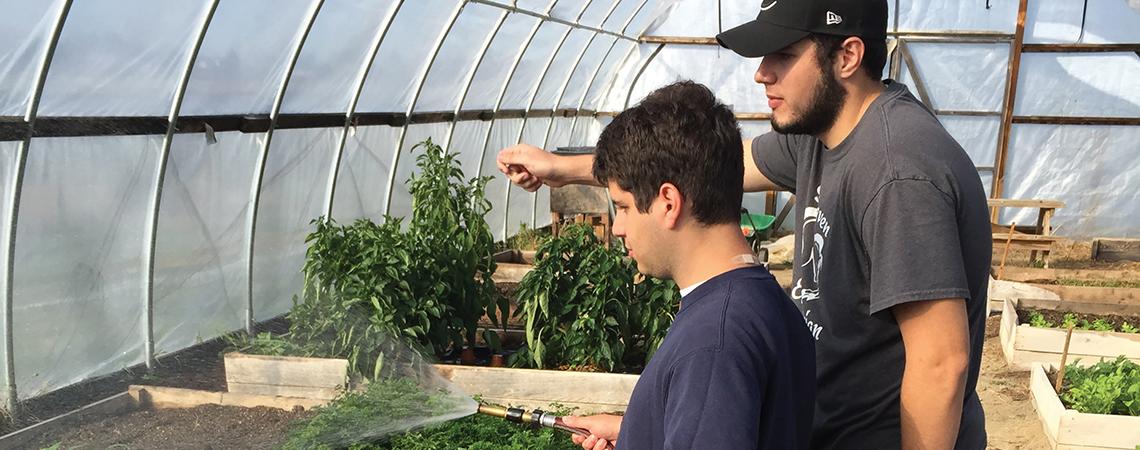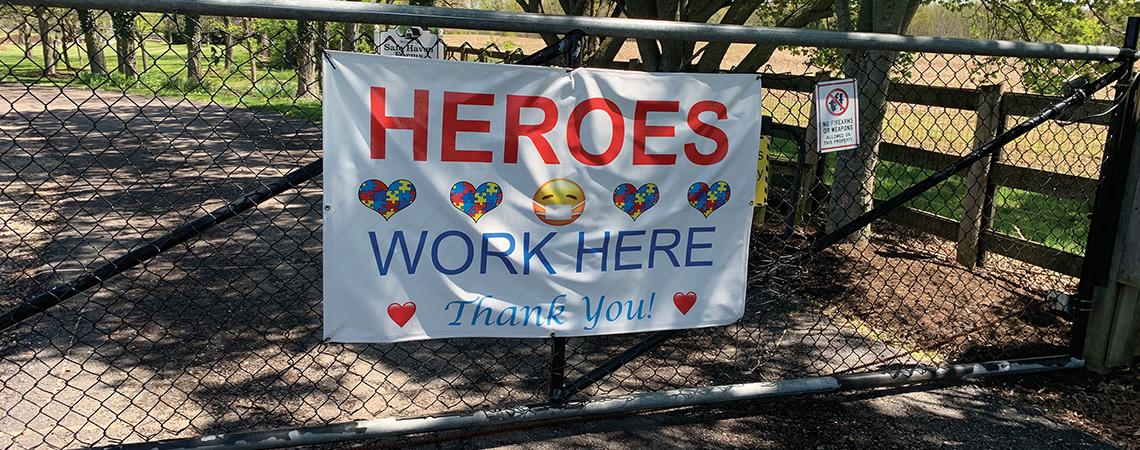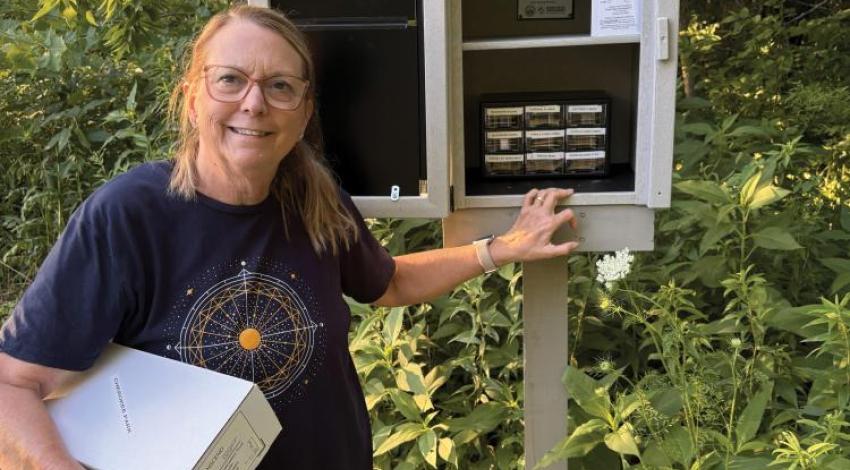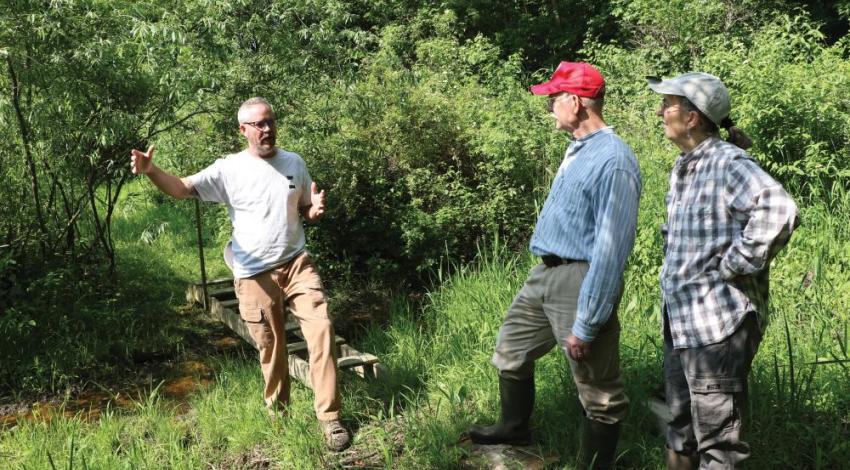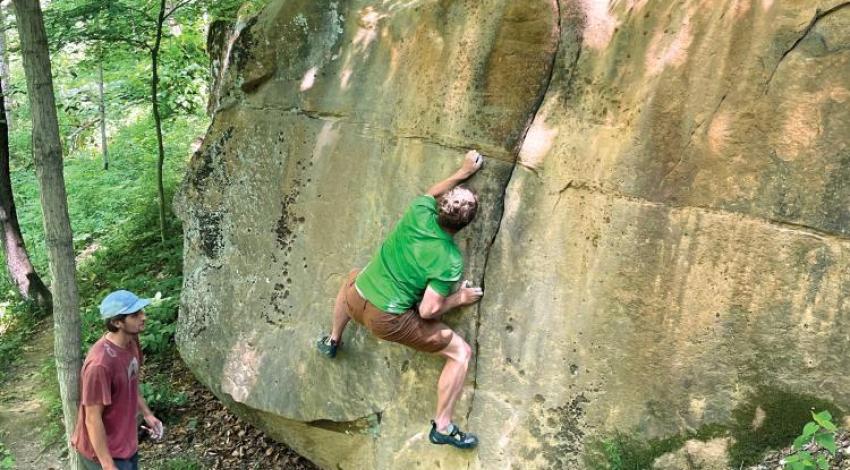Tucked away in the western part of the state is an idyllic 60-acre farm, complete with chickens, horses, alpacas, and a miniature horse named Jack. The human residents here — like all farmers — tend to a wide variety of daily and seasonal tasks. This group, however, receives a helping hand from some 40 staff members, aides, and volunteers.
Safe Haven Farms, a member of Oxford-based Butler Rural Electric Cooperative, provides housing for people with autism spectrum disorder, or ASD. The nonprofit, located near Middletown, is a labor of love created by parents so their adult children and other people with developmental disabilities have a safe place to live their best lives.
Residents of Safe Haven Farms tend to a variety of seasonal tasks that rely on repetition and routine.
ASD is a lifelong condition that affects one in 54 people. Symptoms vary but can include trouble communicating, repeated rocking, and strong reactions to sounds, scents, or tastes. It’s common for an autism diagnosis to include other disorders, such as epilepsy, obsessive-compulsive disorder, ADHD, and bipolar disorder. Depending on the severity of someone’s symptoms, it can be difficult to hold a conversation, maintain a friendship, or keep a job.
Kids can rely on school resources until they turn 22, after which parents and social service agencies try to find housing and programs to support them as adults, which takes trial, error, and determination. A solution that’s a good fit for one person can be a disaster for someone else.
In 2007, seven Ohio families who had exhausted their options decided to build a solution themselves. Some parents knew about Bittersweet Farms in northwest Ohio, the first U.S. farm for adults with autism. Bittersweet and similar programs served as mentors as the seven families raised money and met with officials to form the nonprofit. After several years of effort, Safe Haven Farms opened its gates in 2011.
Today, 16 residents live in four autism-friendly houses with large, separate bedrooms and soundproof walls. It’s a structured environment in a natural setting that’s miles away from city noises that can cause stress. When life becomes stressful anyway, residents can find calming activities outside, such as hiking, gardening, or hanging out with the horses.
The farm provides organic produce, fresh eggs, and herbs to local restaurants and homes through its community-supported agriculture program. Residents can choose to help with farm work, based on their abilities and interests. Repetitive tasks — like poking a hole in the soil, adding a seed, and covering it with more soil — can be appealing to people with ASD, says Pam Lockwood, board president and co-founder.
“There is a lot of repetition in farm work, and there is a beginning and an end. You plant it, you feed it, you watch it grow,” she says. “There’s no rush to learn a task here like there would be at a regular job. If it takes a year to learn something, that’s fine.”
Nonresidents can participate in day programs, including a therapeutic equestrian program. Safe Haven also looks for opportunities to bring people out to the farm, such as inviting speech therapists to a holiday party to gain experience working with autistic adults. This summer, the new farm store will sell alpaca nesting balls, hand-painted garden signs, colorful fire-starter cups, and various other resident-made wares.
Lockwood grew up in Cincinnati, so she learned about farm life along with her son, one of the original resident farmers. David, now in his 30s, had been living in a St. Louis home, and more than once, Lockwood found herself on a five-hour road trip after a medical or other emergency. The house there was also close to the street, so David had to spend much of his time indoors due to safety precautions. That setup can work for some people. It just wasn’t the right fit for her family.
“Everyone is different,” Lockwood says, “and everyone is entitled to live somewhere that works for them.”
In 2011, it was time for Safe Haven Farms to be put to the test. So many people had worked for years to bring the farm to life. Would it be worth all the effort?
Lockwood got her answer shortly after David moved in. She watched his expression slowly change as he realized he could walk around 60 acres of farmland whenever he wanted.
He looked happy. Safe Haven Farms was the right fit.
